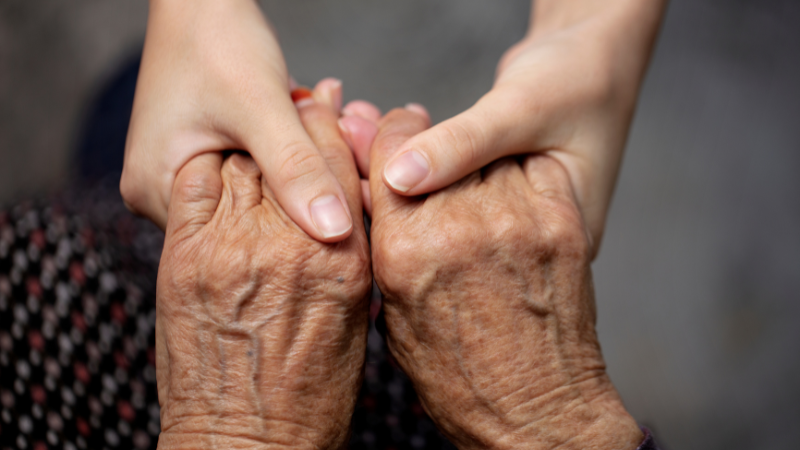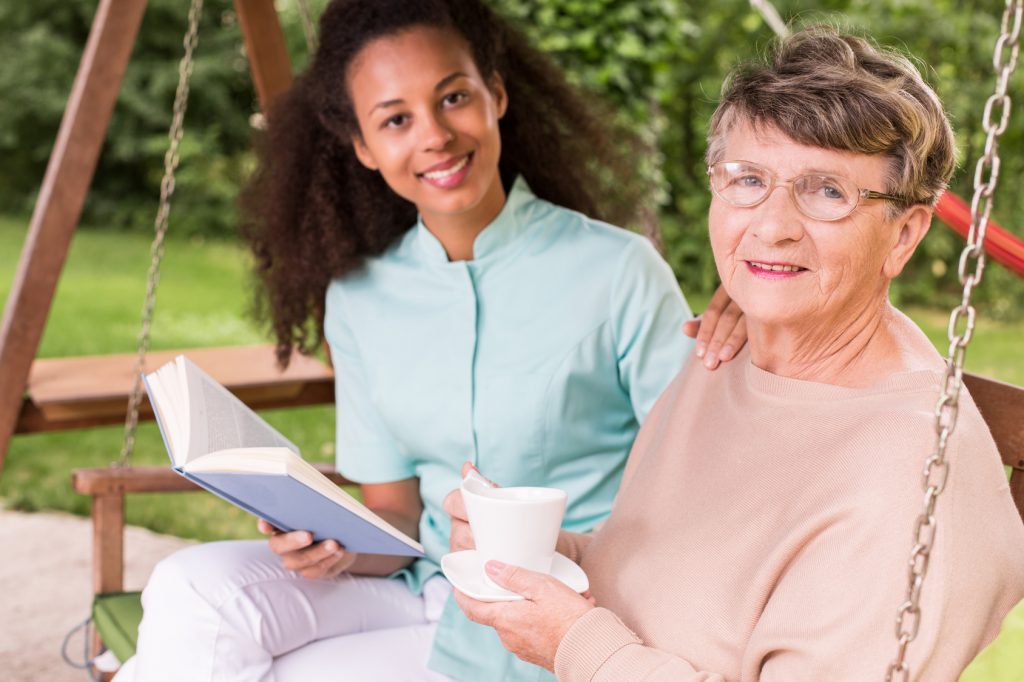
While anxiety is a normal response to stressful events, such as meeting new people or speaking in public, severe anxiety is not a normal part of aging. When seniors suffer from an anxiety disorder, it’s important for caregivers to help them reduce their symptoms.
What are symptoms of anxiety?
Overwhelming feelings of anxiousness and nervousness that affect a senior’s daily life may be symptoms of an anxiety disorder. Seniors may experience mood swings or debilitating worry. Anxiety is common in older adults, even more so than cognitive decline and depression.
The symptoms of anxiety depend on the specific type of anxiety experienced. Feelings of panic, shakiness, feeling lightheaded, and difficulty breathing are common symptoms of anxiety. Digestion problems, headaches, vision problems, muscle tension, and fatigue can arise due to anxiety.
Seniors with anxiety may also intentionally avoid places, people, and thoughts that trigger anxiety. They may also become homebound, refusing to leave the home or isolating themselves. Anxious seniors’ eating habits may change; they may be unable to sleep; or they may have compulsive thoughts.
What types of anxieties can affect seniors?
Seniors may be affected by any one of a number of different anxiety disorders. General anxiety occurs when older people experience racing thoughts, feelings of hopelessness, and persistent worry. Diagnosed seniors are unable to concentrate or sleep and may feel irritable and tired.
Post-traumatic stress disorder is another type of anxiety caused by a traumatic event. The disorder can potentially arise when newly disabled seniors, after being triggered by a past traumatic event, suddenly feel helpless. Obsessive-compulsive disorder is characterized by persistent, disturbing thoughts.
Panic attacks are seldom triggered by a specific event or situation. Rather, a senior who is diagnosed with this type of anxiety feels sudden terror, which can be accompanied by a racing heartbeat, chest pain, weakness, nausea, and dizziness. Older adults with the condition do not want to be alone.
How do caregivers help reduce anxiety in seniors?
Older people are more likely to face new situations, such as dementia or other health changes, financial insecurity, loss of independence, grief over the passing of loved ones, and end-of-life planning. Overwhelming environmental factors like these can trigger anxiety in seniors.
1. Understand the disorder
The first step in helping seniors manage their anxiety is to learn about the disorder. Seniors or caregivers should become aware of what triggers the anxiety and learn how to cope; this strategy will help older people recognize when they feel out of control.
2. Talk about it
Seniors who discuss their anxious feelings and thoughts with others can alleviate them. Older people might turn to trusted family members or professional caregivers. Alternately, seniors can share their feelings in online or in-person support groups. Spiritual leaders can also lend an ear.
3. Rely on a social network
A strong social network is equally important. Family, friends, neighbors, and professional caregivers are helpful resources to seniors when they feel out of control. Supportive individuals can also help anxious seniors identify stressful situations and know when to remove them from these triggering events.
4. Manage stress
Practicing stress management techniques will help an anxious senior feel more relaxed. Examples of ways to manage stress include meditation, mindfulness, yoga, and deep breathing. Senior yoga classes are available in many areas, and professional caregivers can provide the transportation to them.
5. Avoid stimulants
Anxious seniors are advised to reduce the amounts of stimulating substances they ingest, since some of them can worsen anxiety symptoms. Stimulants can include caffeinated teas and coffees, tobacco products, alcoholic beverages, some herbal supplements as well as over-the-counter cold medications.
6. Live a balanced lifestyle
Living a balanced life helps seniors manage stress levels and reduce anxiety. Older adults are encouraged to eat well and remain physically active. Quality sleep is important, since a lack of it can increase anxiety the next day; seniors should get 7 to 9 hours of sleep per night.
A balanced lifestyle also includes participating in hobbies and social activities—both of which reduce stress and anxiety. Seniors are urged to join a local senior center. Homebound seniors may socialize with professional caregivers, who can also provide transportation to social events.
When making the abovementioned adjustments does not alleviate the anxiety, seniors should speak with their physician. A doctor can diagnose an anxiety disorder and develop a treatment plan. Medications or therapy may be recommended as tactics to effectively manage the disorder.
Seniors who suffer from anxiety do not need to accept living with this condition. Today’s treatments are both safe and effective and can help older people diagnosed with anxiety live happy and productive lives. Remember that severe worry and anxiety are not a normal part of aging.

Elderly individuals who feel severe anxiety may need help with coping. When your senior loved one could use extra support at home to manage an anxiety disorder, the companion care services from Assisting Hands Home Care will be invaluable in helping her feel like herself again.
Our non-medical home health care services are designed to support seniors of all ability levels. Professional caregivers from our home care agency assist seniors with all the activities of daily living, so that they can continue to safely live in the comfort and familiarity of home.
We provide help with custodial care, such as bathing, toileting, and grooming. Our caregivers shop for groceries and prepare balanced meals to ensure seniors eat nutritiously. Light housekeeping is included in our care services. We also provide transportation for errands, to doctors’ offices, and to social events.
Companion care from Assisting Hands Home Care prevents seniors from feeling lonely and isolated. We build friendships with the seniors we serve by starting conversations, joining them in recreational activities, taking them on safe outings, assembling puzzles, or playing card games.
Seniors who feel supported at home may experience less anxiety. Choose Assisting Hands Home Care, for quality home care services in Medinah, Glendale Heights, Itasca, Bensenville, Elmhurst, Villa Park, Addison, Lombard, IL and surrounding areas. Our licensed, bonded, and insured caregivers will promote the emotional and physical well-being of your elderly loved one. Call today for an in-home consultation.
Sources:
https://www.ncoa.org/article/anxiety-and-older-adults-a-guide-to-getting-the-relief-you-need
https://www.webmd.com/healthy-aging/what-to-know-about-anxiety-in-older-adults















